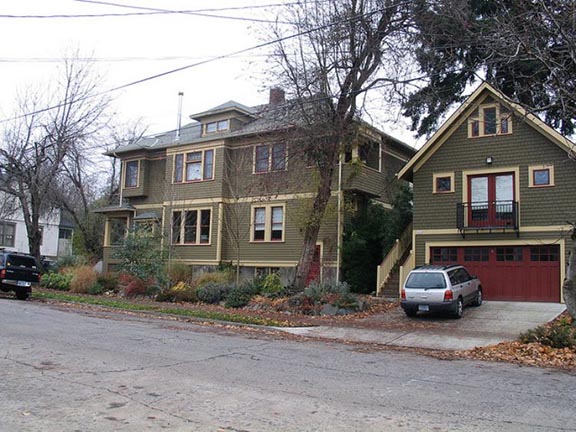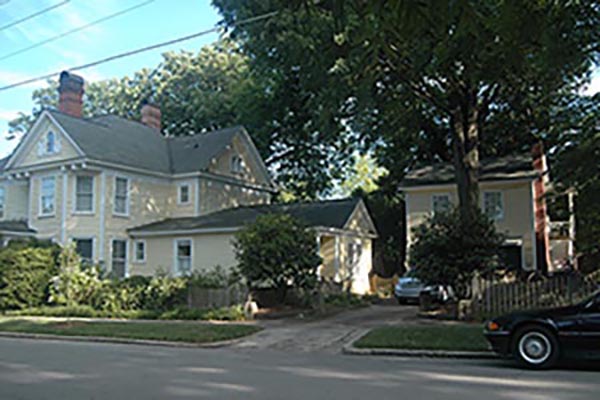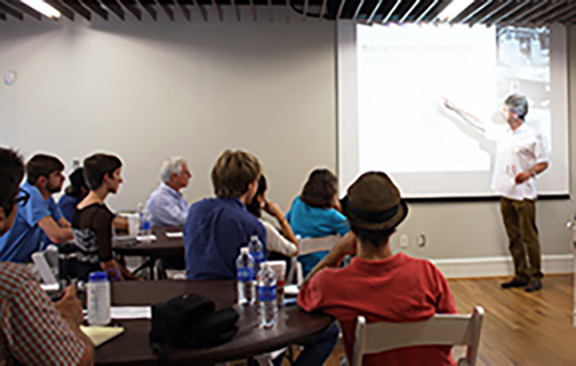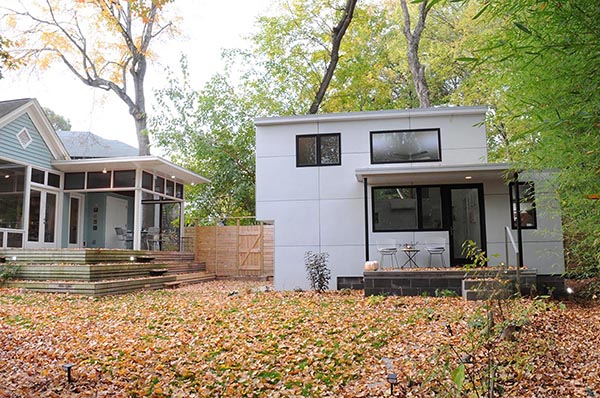ADUs in Raleigh | A Brief History

Accessory Dwelling Units (ADUs) are smaller living units located in or attached to single family homes, above garages, or in backyards. ADUs give homeownersflexibility as family needs change. They provide a place for a boomerang kid or an aging parent to live. They can be rented to help pay the mortgage. And they provide a way to downsize without moving out of one’s neighborhood. ADUs can diversity the housing stock and provide affordable housing units at no cost to municipalities. By adding residents to existing neighborhoods, ADUs use fewer resources, support walkable, transit-oriented communities, and are sustainable.

Major cities across America allow ADUs. Some even promote them because they recognize that growing, dynamic cities with affordable housing challenges need diverse housing. ADUs are part of a national movement to fill the “missing middle” of flexible and neighborhood-scaled housing options. All major North Carolina cities allow them, including Charlotte, Asheville, Durham, and Raleigh, and many are making them easier to build. ADUs are an historic building type found in older, inner city neighborhoods nationwide. One can find them in Oakwood, Mordecai, Forest Park, Boylan Heights, and other historic neighborhoods in Raleigh. However, in the 1970s Raleigh outlawed ADUs. This was during a time of suburban flight and urban decay exacerbated by absentee landlords. It wasn’t until the second decade of the 21st Century that Raleigh reconsidered them.

In 2013 a final draft of the Unified Development Ordinance allowed ADUs but was removed from the final document because of concerns voiced during public input sessions. In 2014 the Urban Design Center of the Planning Department requested a study by the Affordable Housing and Sustainable Communities Initiative at the School of Architecture, NC State, directed by Thomas Barrie FAIA. That fall graduate students worked with the Mordecai Citizen Advisory Council (CAC), a local business organization, and residents, to envision ADUs in the community.

Following the conclusion of the project the Mordecai CAC petitioned City Council to consider legalizing ADUs for their community. Lengthy debate and delays followed with opponents, many from Raleigh’s inner-city neighborhoods, arguing that they would result in a loss of neighborhood character, traffic, and noise. It wasn’t until 2018 that an ordinance permitting ADUs in Raleigh neighborhoods was approved. The ordinance, however, included restrictive mandates including that residents of each neighborhood vote to approve ADUs within specified boundaries, which produced no applications. That year a task force was formed co-chaired by Karen Ridge, Executive Director of WakeUp Wake County and Thomas Barrie FAIA, to engage in advocacy and political activism. In 2019 a new, more progressive council was elected and in 2020 one of their first acts was to make ADUs legal, citywide and by-right. Since then, the city has added incentives, including a fast-track program. The number of ADUs permitted and built has increased every year.